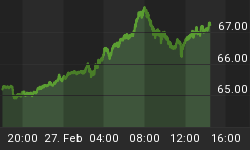Zurich, Hong Kong, Mumbai, Shanghai and Singapore have all detected the UK's ambivalence to physical metal...
A gold sovereign coin is within the UK tax authority's definition of investment gold. But would a new one pass the tests of fairness which government rightly demands of the investment industry?
Probably not. It retails from the Royal Mint for £495 on a day when its gold content is worth £244.78. Sovereign gold costs more than twice its real value. It is a wonder they can sell sovereigns at all, but they can, because of a tax anomaly. There is no capital gains tax on legal tender, and the sovereign -- worth £244.78 in gold -- has a nonsense legal tender value of £1. The tax status of a sovereign rests on your infrequently exercised right to pay with one in Poundland.
This is not the only tax anomaly around gold investment. Long-term owners of real gold see a rising apparent value but devaluation flatters to deceive, and they end up paying capital gains tax on inflation. Meanwhile, here we are in the midst of a financial crisis caused by derivatives, yet, amazingly, the most common gold derivative -- the spread bet -- is tax free. It is a strange distortion which encourages leverage, disadvantages the dull business of saving, eliminates potential government revenue and is probably acting against the long-term national interest.
For the time being, London remains the world centre for professional bullion trading, thanks to its time-zone advantage and its unique infrastructure and expertise. Gold bullion turnover in the London market averages more than $240 billion per day, which is deeper liquidity for buyers and sellers than all but the four most heavily traded currency pairs worldwide. So, in spite of the ill-advised disposal of half the British gold reserve 12 years ago, we remain, for the moment, at the centre of world gold trade.
But we are losing ground. Already the emergence of a Far Eastern kilobar market is attacking the dominance of worldwide 400oz loco London bullion settlement. The increasingly profitable trade is to ship unwanted 400oz bars from London to the Swiss refineries, convert them to kilobars and freight them to Shanghai, where a premium awaits. What drives this trade? It is the relative attraction of real bullion in Asia and the opposite relative attraction of derivatives in London. Tax asymmetry is partly to blame.
Zurich, Hong Kong, Mumbai, Shanghai and Singapore have all detected the UK's ambivalence to physical metal, and they are jostling for position, building vaults and repatriating reserves from London. They know that financial markets cluster around gold, and that gold markets need deep leasing liquidity, made possible by large stocks. Running the world's gold market is a big prize, and it is not something which London wants to lose carelessly.
Can we reverse London's diminishing status? Yes, it is easy, and we can straighten out a number of problems all at once.
Gold investment has once again proved itself in tough times, and gold is about to regain Basel 3 tier 1 capital status, making it very useful to banks. So make private gold deposited at the Bank of England free of capital gains tax. This would dramatically increase the financial firepower of the bank at a time when our commercial banks need support, as might our currency very soon.
Then, to make it sufficiently attractive for private money, enact a right to convert that deposited gold into sovereigns, subject only to seigniorage (coin production tax). If the Royal Mint cannot do this much cheaper than it currently does then break its monopoly, which will quickly eliminate that 100 per cent premium and get a better deal for everyone.
Privately owned gold will then take one of two routes. It will either support the financial strength of the Bank of England and, through this support, our banking system, or it would exit the vaulting system to private possession as a fairly priced gold coin, generating tax revenue where -- because of the absurdity of tax-free spread bets -- none is currently generated.
Private savers will no longer suffer an iniquitous tax on inflation simply through holding real gold. Their new status would be closer (and fairly so) to tax-exempt pension savers, but their wealth would be both reversing the current bullion stock depletions from London and supporting British financial strength with Basel-approved capital. Pension savings do not do this.
The Treasury would benefit, and London's primacy in bullion marketplaces would be supported with private, not public, money placed there freely and by investor choice.
Finally, there is also a significant insurance benefit. We do not know if there is a route out of a £1 trillion national debt. Some hope there is; we cannot help thinking otherwise. Suppose we are right: gold will better underpin a future currency system than will betting slips.
So that is consumer choice widened, a level playing field for tax created, a pillar of London's financial services marketplace supported, increased revenue for the Treasury, increased financial strength for both the central bank and the currency - present and future - and an expensive monopoly broken.
This is our modest proposal.
A version of this proposal first appeared in the Parliamentary Yearbook 2012.















